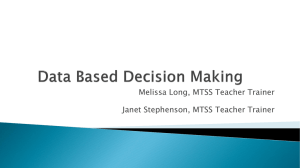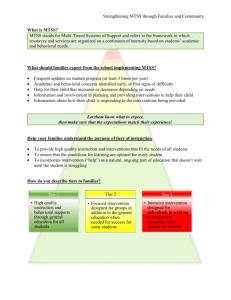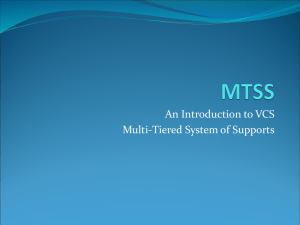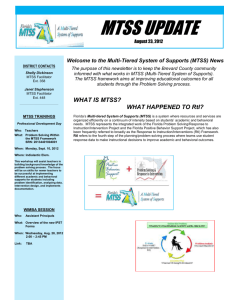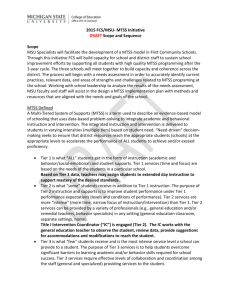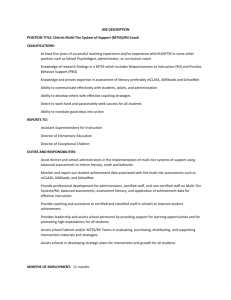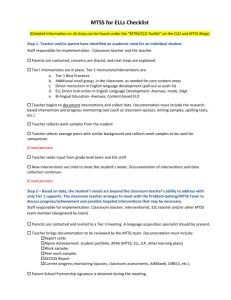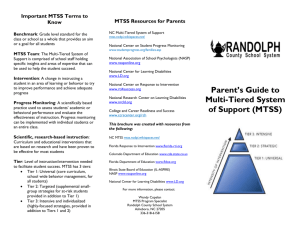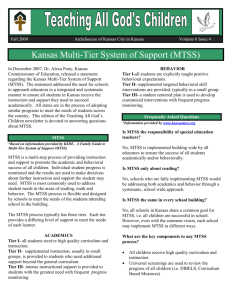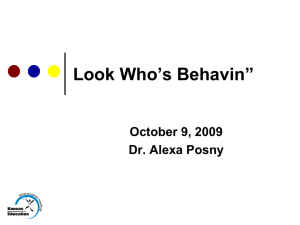MTSS - Mo-Case
advertisement
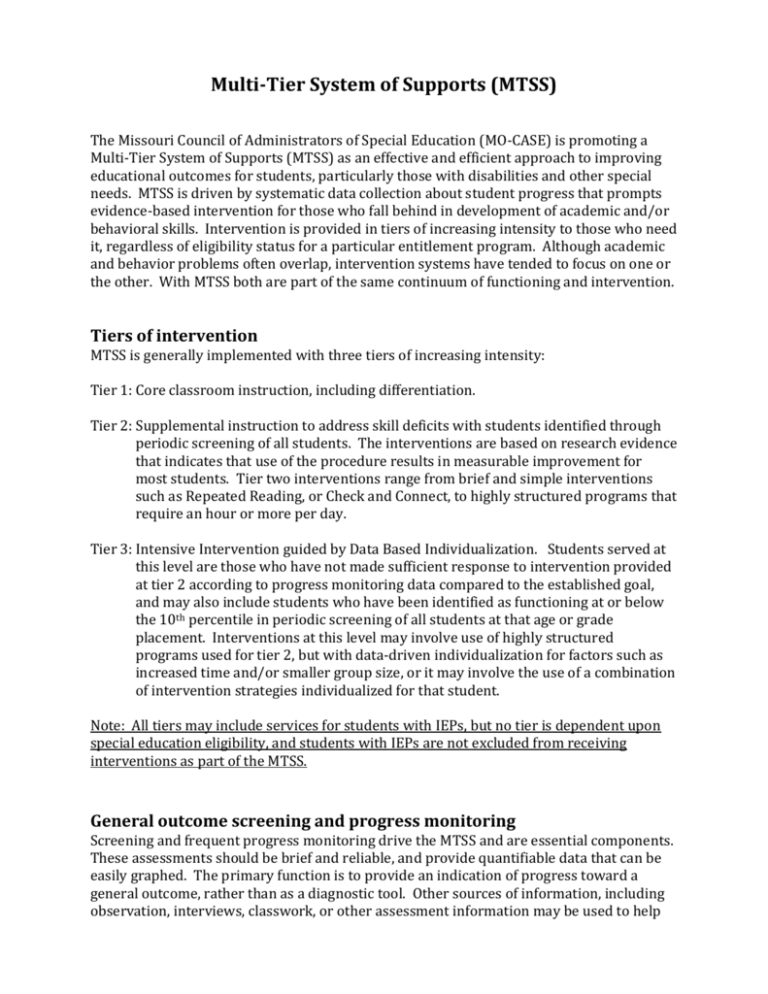
Multi-Tier System of Supports (MTSS) The Missouri Council of Administrators of Special Education (MO-CASE) is promoting a Multi-Tier System of Supports (MTSS) as an effective and efficient approach to improving educational outcomes for students, particularly those with disabilities and other special needs. MTSS is driven by systematic data collection about student progress that prompts evidence-based intervention for those who fall behind in development of academic and/or behavioral skills. Intervention is provided in tiers of increasing intensity to those who need it, regardless of eligibility status for a particular entitlement program. Although academic and behavior problems often overlap, intervention systems have tended to focus on one or the other. With MTSS both are part of the same continuum of functioning and intervention. Tiers of intervention MTSS is generally implemented with three tiers of increasing intensity: Tier 1: Core classroom instruction, including differentiation. Tier 2: Supplemental instruction to address skill deficits with students identified through periodic screening of all students. The interventions are based on research evidence that indicates that use of the procedure results in measurable improvement for most students. Tier two interventions range from brief and simple interventions such as Repeated Reading, or Check and Connect, to highly structured programs that require an hour or more per day. Tier 3: Intensive Intervention guided by Data Based Individualization. Students served at this level are those who have not made sufficient response to intervention provided at tier 2 according to progress monitoring data compared to the established goal, and may also include students who have been identified as functioning at or below the 10th percentile in periodic screening of all students at that age or grade placement. Interventions at this level may involve use of highly structured programs used for tier 2, but with data-driven individualization for factors such as increased time and/or smaller group size, or it may involve the use of a combination of intervention strategies individualized for that student. Note: All tiers may include services for students with IEPs, but no tier is dependent upon special education eligibility, and students with IEPs are not excluded from receiving interventions as part of the MTSS. General outcome screening and progress monitoring Screening and frequent progress monitoring drive the MTSS and are essential components. These assessments should be brief and reliable, and provide quantifiable data that can be easily graphed. The primary function is to provide an indication of progress toward a general outcome, rather than as a diagnostic tool. Other sources of information, including observation, interviews, classwork, or other assessment information may be used to help determine the focus of intervention for students who are identified through general outcome screening and progress monitoring as not making sufficient progress. General screening should occur at three intervals during the school year. Progress monitoring generally is weekly, and sometimes more frequently. Data analysis A voluminous amount of student data without structure and criteria for analysis is not helpful to anyone. MTSS is systematic, and when implemented with fidelity it provides clear guidance of what actions to take, and when. Cut points for identifying students in need of intervention, and expected rates of improvement for establishing rigorous but realistic goals must be in place for MTSS to be operational. Intervention The intervention procedures and programs used in MTSS should be those that have evidence of being effective with most students. Ideally, the evidence comes from experimental design research. Congruence with a theory of learning or philosophy without rigorous experimental design research is a very weak source of evidence. Schools often designate a period of the day in which student intervention occurs. This structure helps ensure that intervention is readily available to any student who needs it, and works well with less intensive Tier 2 interventions. However, it is essential that adequate time be available to complete more structured intervention programs with fidelity in order for students to receive the intended benefit. The time needed for Tier 3 (intensive intervention) must be determined individually, and be guided by frequent progress monitoring data. IDEA Eligibility While the primary focus of MTSS is student support, regardless of program eligibility, response to intervention data, which is an inherent part of MTSS for both academics and behavior, can be utilized in IDEA eligibility evaluations. This is specifically referenced in the Individuals with Disabilities Education Act (IDEA) for the category of Specific Learning Disabilities. Response to intervention data can also be used to help determine educational impact for IDEA categories such as Emotional Disturbance, Other Health Impaired, and Language Impaired. It is important to note that MTSS should never be used to delay a request for evaluation, and is not intended to be a pre-referral obstacle course. Fidelity of implementation Clear procedures and tools for checking the fidelity of implementation for all components of the MTSS must be in place. It is essential that primary functions and who will do them be identified, and that frequent, measurable fidelity checks are part of the system. Training and coaching for staff is key to fidelity of implementation.
